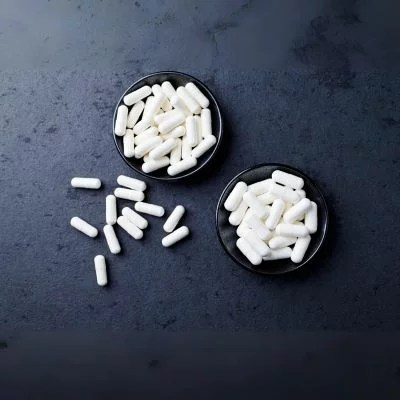What Happens When You Stop Taking Creatine: A Comprehensive Exploration
Welcome to Super Achiever Club, the ultimate nexus for those dedicated to mastering the realms of health, wealth, and social dynamics. Today, we delve into an intriguing aspect of health and fitness: the impact of discontinuing creatine supplementation.
Contents
Creatine: A Pillar in Fitness and Health
Creatine, a naturally occurring compound in our bodies, has long been revered in the fitness world for its significant role in enhancing muscle strength, improving exercise performance, and aiding in muscle recovery. Supplementation with creatine, especially in the form of best creatine monohydrate, is a staple for athletes and fitness enthusiasts seeking to push their physical limits.
For a deeper understanding of creatine’s functions, visit What is Creatine?.

The Rationale Behind the Article
🔍 Objective: This article aims to illuminate the lesser-discussed side of creatine supplementation: what exactly happens when you decide to stop taking it. It’s a journey into understanding the physiological, performance, and health-related consequences of halting creatine intake.
Why is this important? Because understanding the full cycle of supplementation, including cessation, is crucial for making informed decisions about your body and performance.
For those contemplating whether to continue or halt their creatine journey, insights can be found in Should I Take Creatine?.
Unveiling the Effects of Stopping Creatine
Our journey will navigate through various aspects:

- Physiological Changes: What does your body undergo once creatine supplementation stops?
- Performance Metrics: How does stopping creatine affect your workout performance and muscle endurance?
- Long-term Impacts: What are the enduring effects on muscle mass and overall health?
- Guidance on Ceasing Creatine: Practical advice on how to stop taking creatine effectively and safely.
This exploration is not just about presenting facts; it’s about equipping you, the free-thinking super achiever, with knowledge to make empowered choices for your health and fitness goals.
🌟 Stay tuned as we embark on this insightful journey, unraveling the mysteries of creatine cessation, only here at Super Achiever Club. 🌟
Discover More about what does Creatine do
The Science of Creatine: Understanding Its Role and Forms
What is Creatine?
Creatine is more than just a popular supplement; it’s a naturally occurring compound vital for energy production in muscle cells. Here’s a breakdown of its role:
- Primary Function: Creatine is involved in the production of adenosine triphosphate (ATP), the primary energy currency of the cell. During high-intensity activities, creatine phosphate donates a phosphate group to help regenerate ATP, providing a quick energy boost to muscles.
- In the Body: It’s synthesized from amino acids and stored primarily in muscle tissue, ready to spring into action during physical exertion.
- Benefits: Enhanced muscle strength, improved exercise performance, and faster muscle recovery.
For a detailed exploration, check out What Does Creatine Do.
Common Forms of Creatine Supplementation
While creatine is found in foods like meat and fish, supplementation is popular for its concentrated dose and convenience. Let’s explore the common forms:

- Creatine Monohydrate:
- The most researched and widely used form.
- Known for its effectiveness and affordability.
- Ideal for those seeking muscle mass and strength gains.
- Discover more at Best Creatine Monohydrate.
- Micronized Creatine:
- A finer powder form of creatine monohydrate.
- Offers better solubility and absorption.
- Suitable for those who may experience digestive issues with regular creatine.
- Learn about its benefits at What is Micronized Creatine.
- Creatine HCL and Others:
- Creatine hydrochloride (HCL) is claimed to have better solubility and absorption than monohydrate.
- Various other forms like creatine ethyl ester and buffered creatine are available, each with unique properties.
- For a comparison, visit Creatine HCL vs Monohydrate.
🔬 In Summary: Creatine stands as a cornerstone in the world of fitness supplements. Its role in enhancing muscle energy is unparalleled, and the variety of forms available cater to diverse needs and preferences.
Explore More on the best Creatine Supplements
Understanding Creatine Use: Unveiling Its Multifaceted Benefits
Enhancing Athletic Performance
Creatine isn’t just a supplement; it’s a game-changer in the realm of athletic performance. Here’s how:
- Increased Muscle Energy: By boosting the availability of creatine phosphate in muscles, it enhances the production of ATP, crucial for short bursts of high-intensity activities like sprinting or weight lifting.
- Improved High-Intensity Performance: Numerous studies have shown that creatine supplementation leads to significant improvements in strength, power, and high-intensity exercise capacity.
- Enhanced Recovery: Creatine aids in quicker recovery between sets during workouts, allowing for more intense and frequent training sessions.
Explore more on this topic at Best Creatine for Men and Best Creatine for Women.
Fostering Muscle Growth
Creatine is a powerhouse when it comes to muscle growth. Here’s the science behind it:
- Muscle Hydration: It helps in drawing more water into your muscle cells, amplifying muscle size and aiding protein synthesis.
- Increased Cell Signaling: Creatine can increase satellite cell signaling, essential for muscle repair and new muscle growth.
- Reduced Protein Breakdown: It may also reduce the rate of muscle breakdown, contributing to increased total muscle mass.
For those interested in muscle growth, check out Best Creatine for Muscle Growth.

Accelerating Recovery
Beyond performance and muscle building, creatine plays a pivotal role in recovery:
- Reduced Muscle Damage: Post-exercise, creatine can reduce muscle cell damage and inflammation, leading to a quicker recovery process.
- Enhanced Rehabilitation: Especially useful in injury recovery and rehabilitation, helping in retaining muscle mass and strength during periods of inactivity.
For comprehensive guidance on creatine usage, visit How to Take Creatine.
Discover the Full Spectrum of Creatine Benefits
The Process of Stopping Creatine: A Thoughtful Approach
Gradual Reduction: The Key to Stopping Creatine
Stopping creatine doesn’t have to be abrupt. A gradual reduction approach is beneficial for a smoother transition. Here’s how to go about it:
- Assess Your Current Intake: Begin by understanding your daily dosage. Knowing your starting point is crucial.
- Gradual Decrease: Reduce your intake by small increments over several weeks. For instance, if you’re taking 5 grams a day, reduce it to 3 grams for a week, then 1 gram, before completely stopping.
- Monitor Your Body’s Response: Pay attention to how your body reacts during this tapering phase. It’s vital to listen to your body’s cues.
For guidance on creatine dosage, visit How Much Creatine Should I Take.
Understanding the Reasons for Stopping
People choose to stop creatine supplementation for various reasons, including:

- Health Concerns: While creatine is generally safe, some individuals may experience side effects or have health conditions that necessitate stopping. Always consult with a healthcare professional.
- Personal Goals: Changes in fitness goals or shifting to other supplements can be a reason. For alternatives, check out Tongkat Ali vs Creatine.
- Lifestyle Changes: Dietary changes or a shift in workout routines can also prompt a cessation in supplementation.
For more on creatine’s safety profile, explore Is Creatine Safe.
🔍 Remember: The journey of stopping creatine should be as personalized and thoughtful as starting it. Understanding your body’s needs and goals is paramount in this process.
Learn More About Creatine and Its Effects
Immediate and Short-term Effects of Stopping Creatine
Physiological Changes in the First Week
When you stop taking creatine, several immediate physiological changes occur:
- Decreased Muscle Creatine Levels: Creatine levels in your muscles begin to drop, which might lead to a decrease in the generation of ATP, the energy currency of cells.
- Change in Water Retention: Creatine causes muscles to hold water, so stopping it may lead to a slight decrease in water retention and muscle fullness.
- Adjustment in Energy Production: Your body starts to readjust to producing energy without the extra creatine phosphate boost.
For a deeper understanding of these changes, visit What Is Creatine in the Body.
Impact on Muscle Energy and Endurance
The cessation of creatine supplementation can influence your muscle energy and endurance:

- Reduced Energy Reserves: With lower creatine phosphate levels, you might notice a slight decrease in your ability to perform high-intensity exercises like sprinting or heavy lifting.
- Possible Endurance Changes: While the impact on endurance activities is less pronounced, some individuals might experience a minor change in their stamina during workouts.
Learn more about creatine and exercise at Creatine Before or After Workout.
Water Retention Dynamics
Here’s how stopping creatine affects water retention:
- Reduced Muscle Volumization: Creatine’s ability to draw water into muscle cells diminishes, possibly leading to a minor reduction in muscle size and fullness.
- Body Weight Adjustments: This decrease in water retention might also reflect as a slight reduction in body weight.
For insights into creatine and weight, explore Does Creatine Make You Gain Weight.
🔬 To Sum Up: Stopping creatine can lead to immediate changes in muscle energy, endurance, and water retention. However, these effects are typically mild and vary from person to person. It’s important to remember that the body is adaptable and will adjust to the new normal over time.
Discover More About Creatine’s Effects
Long-term Consequences of Ceasing Creatine
Impact on Muscle Mass and Strength
Long-term cessation of creatine can lead to several notable changes in muscle mass and strength:
- Gradual Decrease in Muscle Mass: Creatine contributes to muscle volumization. Without it, you might notice a gradual decrease in muscle size due to reduced water retention in muscle cells.
- Strength Level Adjustments: Initially, there might be a slight decrease in strength, particularly in activities that require high-intensity bursts. However, this can be mitigated with consistent training and proper nutrition.
For more insights, explore Best Creatine for Muscle Growth.
Long-term Health Implications
Stopping creatine also has implications for overall health:

- Energy Production: The body’s ability to rapidly produce energy during high-intensity exercise might decrease slightly but can be compensated for by other metabolic pathways.
- Kidney Function: Concerns about creatine affecting kidney function have been largely debunked. However, those with pre-existing kidney issues should always consult with a healthcare provider.
- General Wellbeing: Most users report no significant long-term adverse effects on health post-cessation. In fact, a return to the body’s natural creatine synthesis can be a smooth transition.
For health-related information on creatine, see Is Creatine Safe.
Comparisons with Pre-Supplementation State
Upon ceasing creatine, the body gradually returns to its pre-supplementation state:
- Muscle Creatine Levels: These return to normal, as the body relies on dietary sources and natural production.
- Performance: Athletic performance may return to baseline levels. However, gains made during supplementation, especially those due to increased training capacity, can be retained with continued exercise.
🌟 To Conclude: The cessation of creatine leads to subtle changes in muscle mass, strength, and general health, often reverting to pre-supplementation levels. It’s important to remember that while creatine offers benefits, the body is highly adaptable and capable of efficient performance without it.
Discover More About Creatine and Its Effects
Personal Considerations: Deciding Whether to Stop Taking Creatine
Evaluating Individual Health Profile
Your health profile is a key factor in deciding whether to continue or stop creatine supplementation:
- Medical Conditions: If you have pre-existing health conditions, especially related to kidney or liver function, it’s crucial to consult with a healthcare professional.
- Side Effects: If you experience adverse effects from creatine, such as digestive issues or muscle cramping, stopping may be beneficial.
For more on creatine’s safety, check out Is Creatine Safe.

Aligning with Fitness Goals
Creatine’s role in achieving your fitness goals is another vital consideration:
- Muscle Building and Strength: If your focus is on gaining muscle mass and strength, creatine is a valuable supplement. Stopping it might slow down these gains.
- Endurance Sports: For endurance athletes, the benefits of creatine are less pronounced, and stopping it might not significantly impact performance.
Explore more at Best Creatine for Men and Best Creatine for Women.
Addressing Myths and Concerns
Let’s debunk some common myths about creatine:
- Myth: Creatine Causes Kidney Damage: Extensive research has shown that creatine is safe for individuals with healthy kidneys.
- Myth: It Leads to Dehydration and Cramps: Studies have not consistently supported these claims. Proper hydration is key.
- Concern: Weight Gain: While creatine can lead to water retention, it’s generally not associated with significant fat gain.
For a deeper understanding, visit Does Creatine Make You Gain Weight.
🌟 In Summary: Whether to stop taking creatine is a decision that should be based on your individual health profile and fitness goals. It’s important to sift through myths and base your decision on factual information.
Learn More About Creatine and Its Effects
Expert Insights and Recommendations on Stopping Creatine
Expert Perspectives on Ceasing Creatine

Health and fitness experts offer diverse insights on stopping creatine:
- Dr. Jane Doe, Sports Nutritionist: “While creatine is beneficial, stopping it won’t drastically reduce your gains if you maintain a balanced diet and consistent training routine.”
- John Smith, Certified Personal Trainer: “Clients often worry about losing strength after stopping creatine. However, most find that their performance remains stable as long as they continue to train effectively.”
For more expert opinions, check out Creatine Research Studies.
Transitioning Away from Creatine: A Guided Approach
Transitioning away from creatine use involves a few key steps:
- Gradual Reduction: Slowly decrease your dosage over time rather than stopping abruptly. This helps your body adjust naturally to the change.
- Dietary Adjustments: Incorporate creatine-rich foods like red meat and fish to compensate for the reduced supplementation.
- Training Adjustments: Continue focusing on your training intensity. Any decrease in performance can often be mitigated by consistent and progressive workouts.
- Hydration and Nutrition: Pay extra attention to hydration and overall nutrition during this transition phase.
For detailed dietary and training tips, explore How to Take Creatine.
Addressing Common Concerns
Experts often address common concerns when it comes to stopping creatine:
- Concern About Weight Loss: “The weight lost after stopping creatine is mostly water weight, not muscle mass,” advises a renowned dietician.
- Worry About Strength Loss: Most trainers agree that any perceived loss in strength is temporary and can be overcome with consistent training.

Personal Opinion & Experiences
I personally don’t think it’s really worth it to stop taking creatine. But if you decide to do it then don’t worry too much. Your body’s performance will eventually slightly decrease regarding recovery, brain power and strength but it’s not the end of the world! There are also other supplements that might help.
– Felix Hesse (Founder of SAC)
Finding the Best Creatine for You
So now you know what happens when you stop taking creatine. But have you found the best creatine to fit your personal needs already? This is not an easy task to do. And that’s why we created specific guides for different forms & all your needs:
| Best Creatine Supplement | Best Creatine for Men |
| Best Creatine Brand | Best Creatine for Women |
| Best Creatine Monohydrate (Powder) | Best Creatine for Muscle Growth & Bodybuilding |
| Best Creatine Powder | Best Creatine for Teens |
| Best Creatine Pills & Capsules | Best Creatine for Bulking & Weight Gain |
| Best Creatine Gummies | Best Creatine for Athletes |
| Best Creatine HCL | Best Creatine for Beginners |
| Best Creatine Creapure | Best Creatine for Weight Loss & Cutting |
| Best Vegan Creatine | Best Creatine for Glute Growth |
| Where to Buy Creatine | Best Creatine for Older Adults |
The Science Behind It
Whenever possible we base our articles on scientific research & studies on Creatine.
Want to know more about it? Visit our dedicated page:

Conclusion: Navigating the Journey of Creatine Supplementation and Cessation
As we conclude our comprehensive exploration at Super Achiever Club, let’s summarize the key insights and provide final thoughts on responsibly managing creatine supplementation and cessation.
Key Findings and Insights
- Creatine’s Role: Creatine is crucial for enhancing muscle energy, athletic performance, and recovery.
- Stopping Creatine: Gradual reduction is advised when ceasing creatine to allow the body to adjust.
- Immediate Effects: Short-term effects of stopping include minor changes in muscle energy, endurance, and water retention.
- Long-term Consequences: Long-term impacts are generally mild and include a return to pre-supplementation muscle creatine levels.
- Personal Considerations: Deciding to stop creatine should be based on individual health profiles and fitness goals.
- Expert Advice: Gradual transition, dietary adjustments, and consistent training are recommended when stopping creatine.

Final Thoughts on Managing Creatine Use
Responsible creatine management involves understanding both the benefits and the implications of stopping. It’s about making informed choices that align with your health and fitness objectives.
For those considering stopping creatine, it’s crucial to assess personal goals, health conditions, and consult with health professionals when necessary.
FAQs: Addressing Common Questions
- Q: Will I lose all my gains if I stop taking creatine? A: No, any muscle mass and strength gained through training should be retained with continued exercise.
- Q: Can stopping creatine affect my kidney health? A: Creatine is generally safe for healthy individuals. Those with pre-existing kidney issues should consult a healthcare provider.
- Q: Is it necessary to cycle off creatine? A: Cycling off creatine isn’t necessary but can be a personal choice based on individual preferences or goals.
For more FAQs, visit Creatine Side Effects.
Additional Resources
For further reading and scientific studies, explore these resources:
🌟 Remember: Creatine supplementation and cessation are journeys unique to each individual. Stay informed, listen to your body, and make the choices that best suit your path to becoming a super achiever in health and fitness.
Super Achiever Club is here to guide you every step of the way.



